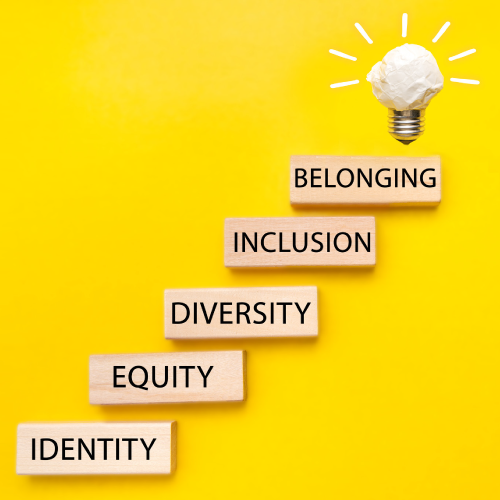October 1 @ 12:00 pm – 2:00 pm EDT
Register for a single session or the full series.
Our team pricing allows you to register three people from your organization at a reduced rate.
To receive this rate, the first person should register for the single session or bundle. Then, email Elizabeth Lopez-Hernandez of Social Current and register the remaining two participants with the discount code provided. Each participant should register separately through the links above.
COA-Accredited Organizations and/or Impact Partners:
- One Session (Individual): $150
- One Session (Team of Three): $250
- Three-Part Bundle (Individual): $375
- Three-Part Bundle (Team of Three): $600
Other Organizations:
- One Session (Individual): $250
- One session (Team of Three): $350
- Three-Part Bundle (Individual): $600
- Three-Part Bundle (Team of Three): $800
This interactive session will outline the benefits of a psychologically safe organization and will offer specific strategies that can be used to address common challenges and create a culture that supports equity, diversity, and inclusion (EDI). As organizations work to fully embed EDI in their values, goals, and culture, it is vital to create safe spaces for staff to learn, share, challenge ideas, and engage in respectful dialogue. This process also helps staff advance their own personal and professional journeys. While psychological safety is a state of feeling supported and accepted and a place where mistakes are treated as opportunities to learn, it isn’t free of accountability or discomfort. Learn how to help your organization navigate these complexities so that all staff can benefit.
Session Learning Objectives
- How brain function, culture, and society contribute to implicit bias
- Common ways implicit bias is present in the workplace and how mental processes and culture contribute
- Strategies for increasing intercultural awareness as part of their personal EDI journey
- Strategies for disrupting implicit bias in their daily work
About the Series
Successfully leading equity, diversity, and inclusion (EDI) initiatives in the workplace requires a deep understanding of the common challenges that affect organizational culture, as well as practices that build bridges and create a stronger community. This virtual learning series is designed for staff who are leading their organizations’ EDI efforts and want to grow their understanding and application of key EDI concepts. Participants will be able to better address complex workplace dynamics and craft meaningful strategies for growth.
Take advantage of three unique two-hour webinars on core concepts. They can serve as a foundational learning series for staff who are new to leading EDI initiatives, or as a refresher course for those looking to revamp or relaunch an EDI initiative. Register for single sessions or save by purchasing the entire series.
- Cultural Humility: Sept. 9 from Noon-2 p.m. ET
- Implicit Bias: Sept. 24 from Noon-2 p.m. ET
- Psychological Safety and Equity: Oct. 1 from Noon-2 p.m. ET
Series Learning Objectives
- Core tenets of cultural humility
- Common ways implicit bias occurs in the workplace and how mental processes and culture contribute
- How organizational leadership can create and support a psychologically safe environment
Instruction Methods
- Short lectures
- Small-group and large-group discussions
- Supplemental articles and resources
Who Should Participate
- Equity, diversity, and inclusion staff and leaders
- Equity, diversity, and inclusion committee members
- Human resources staff
- Managers and supervisors
- Program directors
Presenters
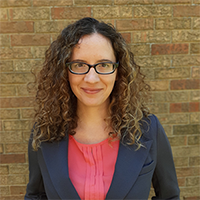
Jerica Broeckling
EDI and Engagement Partner
Social Current
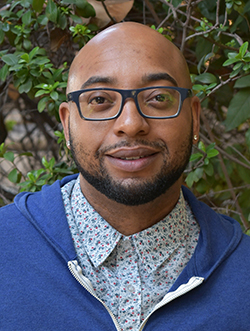
Romero Davis
Director of Practice Excellence
Social Current
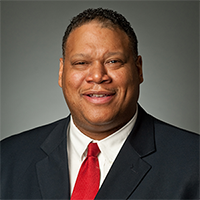
Undraye Howard
Vice President of EDI and Engagement
Social Current
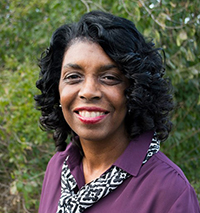
Phyllis Richards
Director of EDI and Research
Social Current
Related Events
September 24 @ 12:00 pm – 2:00 pm EDT
Register for a single session or the full series.
Our team pricing allows you to register three people from your organization at a reduced rate.
To receive this rate, the first person should register for the single session or bundle. Then, email Elizabeth Lopez-Hernandez of Social Current and register the remaining two participants with the discount code provided. Each participant should register separately through the links above.
COA-Accredited Organization and/or Impact Partner:
- One Session (Individual): $150
- One Session (Team of Three): $250
- Three-Part Bundle (Individual): $375
- Three-Part Bundle (Team of Three): $600
Other Organizations:
- One Session (Individual): $250
- One session (Team of Three): $350
- Three-Part Bundle (Individual): $600
- Three-Part Bundle (Team of Three): $800
Organizations and staff working to advance EDI require more than just technical knowledge and the will to act. They also must understand the multiple ways in which bias manifests in our daily lives and working relationships in unconscious ways. Building on brain function research and behavioral science, participants will learn about common bias traps, what causes them, and what can work to reduce and/or eliminate them. Through learning, discussion, and interaction, participants will better understand their own biases and how to disrupt them and develop cultural competence in working across differences.
Session Learning Objectives
- How brain function, culture, and society contribute to implicit bias
- Common ways implicit bias is present in the workplace and how mental processes and culture contribute
- Strategies for increasing intercultural awareness as part of their personal EDI journey
- Strategies for disrupting implicit bias in their daily work
About the Series
Successfully leading equity, diversity, and inclusion (EDI) initiatives in the workplace requires a deep understanding of the common challenges that affect organizational culture, as well as practices that build bridges and create a stronger community. This virtual learning series is designed for staff who are leading their organizations’ EDI efforts and want to grow their understanding and application of key EDI concepts. Participants will be able to better address complex workplace dynamics and craft meaningful strategies for growth.
Take advantage of three unique two-hour webinars on core concepts. They can serve as a foundational learning series for staff who are new to leading EDI initiatives, or as a refresher course for those looking to revamp or relaunch an EDI initiative. Register for single sessions or save by purchasing the entire series.
- Cultural Humility: Sept. 9 from Noon-2 p.m. ET
- Implicit Bias: Sept. 24 from Noon-2 p.m. ET
- Psychological Safety and Equity: Oct. 1 from Noon-2 p.m. ET
Series Learning Objectives
- Core tenets of cultural humility
- Common ways implicit bias occurs in the workplace and how mental processes and culture contribute
- How organizational leadership can create and support a psychologically safe environment
Instruction Methods
- Short lectures
- Small-group and large-group discussions
- Supplemental articles and resources
Who Should Participate
- Equity, diversity, and inclusion staff and leaders
- Equity, diversity, and inclusion committee members
- Human resources staff
- Managers and supervisors
- Program directors
Presenters

Jerica Broeckling
EDI and Engagement Partner
Social Current

Romero Davis
Director of Practice Excellence
Social Current

Undraye Howard
Vice President of EDI and Engagement
Social Current

Phyllis Richards
Director of EDI and Research
Social Current
Related Events
September 9 @ 12:00 pm – 2:00 pm EDT
Register for a single session or the full series.
Our team pricing allows you to register three people from your organization at a reduced rate.
To receive this rate, the first person should register for the single session or bundle. Then, email Elizabeth Lopez-Hernandez of Social Current and register the remaining two participants with the discount code provided. Each participant should register separately through the links above.
COA-Accredited Organizations and/or Impact Partners:
- One Session (Individual): $150
- One Session (Team of Three): $250
- Three-Part Bundle (Individual): $375
- Three-Part Bundle (Team of Three): $600
Other Organizations:
- One Session (Individual): $250
- One session (Team of Three): $350
- Three-Part Bundle (Individual): $600
- Three-Part Bundle (Team of Three): $800
In this session, participants will learn how a cultural humility framework can be used to help staff in all areas of an organization connect their work and shared mission to equity. This framework is an important tool for organizations that work daily with families and communities to build opportunities and overcome barriers. Integrating a practice of self-reflection, personal accountability, and challenging power imbalances is foundational to meaningfully engaging with people with diverse perspectives and experiences. Learn how to integrate these practices into your work and your staff’s work to create stronger relationships and improved outcomes.
Session Learning Objectives
- About the core tenets of cultural humility: Self-reflection, institutional and personal accountability, and reducing power imbalances
- How bias, racism, and incivility show up and create barriers to building collaborative working relationships
- Strategies for embedding cultural humility practices into an organization’s programs and community relationships
About the Series
Successfully leading equity, diversity, and inclusion (EDI) initiatives in the workplace requires a deep understanding of the common challenges that affect organizational culture, as well as practices that build bridges. This virtual learning series is designed for staff who are leading their organizations’ EDI efforts and want to grow their understanding and application of key EDI concepts. Participants will be able to better address complex workplace dynamics and craft meaningful strategies for growth.
Take advantage of three unique two-hour webinars on core concepts. They can serve as a foundational learning series for staff who are new to leading EDI initiatives, or as a refresher course for those looking to revamp or relaunch an EDI initiative. Register for single sessions or save by purchasing the entire series.
- Cultural Humility: Sept. 9 from Noon-2 p.m. ET
- Implicit Bias: Sept. 24 from Noon-2 p.m. ET
- Psychological Safety and Equity: Oct. 1 from Noon-2 p.m. ET
Series Learning Objectives
- Core tenets of cultural humility
- Common ways implicit bias occurs in the workplace and how mental processes and culture contribute
- How organizational leadership can create and support a psychologically safe environment
Instruction Methods
- Short lectures
- Small-group and large-group discussions
- Supplemental articles and resources
Who Should Participate
- Equity, diversity, and inclusion staff and leaders
- Equity, diversity, and inclusion committee members
- Human resources staff
- Managers and supervisors
- Program directors
Presenters

Jerica Broeckling
EDI and Engagement Partner
Social Current

Romero Davis
Director of Practice Excellence
Social Current

Undraye Howard
Vice President of EDI and Engagement
Social Current

Phyllis Richards
Director of EDI and Research
Social Current
Related Events
July 31 @ 12:00 pm – 2:00 pm EDT
Register for a single session or the full learning series.
Our team pricing allows you to register three people from your organization at a reduced rate. To receive this rate, the first person should register for the single session or bundle. Then, email Elizabeth Lopez-Hernandez of Social Current and register the remaining two participants with the discount code provided. Each participant should register separately through the links above.
COA-Accredited Organizations and/or Impact Partners:
- One Session (Individual): $150
- One Session (Team of Three): $250
- Four-Part Bundle (Individual): $500
- Four-Part Bundle (Team of Three): $800
Other Organizations:
- One Session (Individual): $250
- One session (Team of Three): $350
- Four-Part Bundle (Individual): $800
- Four-Part Bundle (Team of Three): $1000
This interactive session will outline the benefits of a psychologically safe organization and will offer specific strategies supervisors can use to address common challenges and create and support an internal culture of trust and empathy.
As organizations work to fully embed equity, diversity, and inclusion principles, it is vital to create safe spaces for staff to learn, share, challenge the status quo, and respectfully question others. While psychological safety is a state of feeling supported and accepted and a place where mistakes are treated as opportunities to learn, it isn’t free of accountability or discomfort. This session will help supervisors navigate the complexities of psychological safety so they can create a positive team culture.
Session Learning Objectives
- Define psychological safety and its importance to equity, diversity, and inclusion
- How supervisors can create and support a psychologically safe environment
- Why it is challenging, yet necessary to develop psychological safety
About the Series
Supervisors play a key role in supporting and retaining staff, engaging diverse teams, and fostering a sense of belonging, so it’s important to make sure they are equipped with the right knowledge and tools. Being effective requires specific skills that are often unaddressed and underdeveloped. Because our workplaces are diverse in many ways – race, age, lived experience, and more – this series is grounded in equity, diversity, and inclusion (EDI) best practices. With EDI as the foundation, these sessions will give supervisors the tools they need to support and engage their team’s varied views, experiences, and capabilities.
This virtual learning series offers a two-hour learning and engagement session each quarter on an EDI topic that is tailored to the unique role of supervisors. Register for single sessions or save by purchasing the entire series.
- Building Trust and Psychological Safety: July 31 from Noon-2 p.m. ET
- A Millennial’s Guide to Supervision and Exceling as a Leader: Aug. 14 from Noon-2 p.m. ET
- Effective Coaching and Communication: Sept. 18 Noon-2 p.m. ET
- Change Management for a Better Supervisor: Dec. 4 from Noon-2 p.m. ET
Series Learning Objectives
- The importance of supervisors using an inclusive lens in day-to-day interactions
- Ways to build psychological safety within teams
- Essential supervisory skills for more impactful outcomes
- How to build a change management processes
Instruction Methods
- Short lectures
- Small-group and large-group discussions
- Supplemental articles and resources
Who Should Participate
- Supervisors and managers at all levels within the organization
Presenters

Jerica Broeckling
EDI and Engagement Partner

Romero Davis
Director of Practice Excellence
Social Current

Undraye Howard
Vice President of EDI and Engagement
Social Current

Phyllis Richards
Director of EDI and Research
Social Current
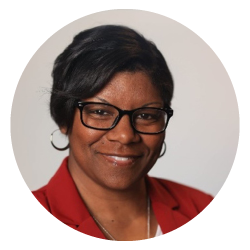
Robena Spangler
Senior Director of Leadership Development and Organizational Excellence
Social Current
Related Events
August 14 @ 12:00 pm – 2:00 pm EDT
Register for a single session or the full learning series.
Our team pricing allows you to register three people from your organization at a reduced rate. To receive this rate, the first person should register for the single session or bundle. Then, email Elizabeth Lopez-Hernandez of Social Current and register the remaining two participants with the discount code provided. Each participant should register separately through the links above.
COA-Accredited Organizations and/or Impact Partners:
- One Session (Individual): $150
- One Session (Team of Three): $250
- Four-Part Bundle (Individual): $500
- Four-Part Bundle (Team of Three): $800
Other Organizations:
- One Session (Individual): $250
- One session (Team of Three): $350
- Four-Part Bundle (Individual): $800
- Four-Part Bundle (Team of Three): $1000
In 2025, 75% of the workforce will be comprised of millennials. This interactive session will provide participants with opportunities to identify supervisory challenges they are currently facing and applicable solutions to these obstacles.
Millennial supervisors must navigate the complexities of a multigenerational workplace, manage staff who work in the community or different locations, and mitigate threats to workforce well-being. There’s also the added challenge of generational stereotypes.
Millennials are often described as entitled and self-centered. However, through interaction and lived experience, we know millennials are confident, tolerant, and have heightened awareness around social issues.
The goal of this training and information exchange is to improve personal and professional balance.
Session Learning Objectives
- Increase awareness related to supervisory challenges
- Identify workable solutions
- Strategize ways to apply meaningful solutions to identified challenges
About the Series
Supervisors play a key role in supporting and retaining staff, engaging diverse teams, and fostering a sense of belonging, so it’s important to make sure they are equipped with the right knowledge and tools. Being effective requires specific skills that are often unaddressed and underdeveloped. Because our workplaces are diverse in many ways – race, age, lived experience, and more – this series is grounded in equity, diversity, and inclusion (EDI) best practices. With EDI as the foundation, these sessions will give supervisors the tools they need to support and engage their team’s varied views, experiences, and capabilities.
This virtual learning series offers a two-hour learning and engagement session each quarter on an EDI topic that is tailored to the unique role of supervisors. Register for single sessions or save by purchasing the entire series.
- Building Trust and Psychological Safety: July 31 from Noon-2 p.m. ET
- A Millennial’s Guide to Supervision and Exceling as a Leader: Aug. 14 from Noon-2 p.m. ET
- Effective Coaching and Communication: Sept. 18 Noon-2 p.m. ET
- Change Management for a Better Supervisor: Dec. 4 from Noon-2 p.m. ET
Series Learning Objectives
- The importance of supervisors using an inclusive lens in day-to-day interactions
- Ways to build psychological safety within teams
- Essential supervisory skills for more impactful outcomes
- How to build a change management processes
Instruction Methods
- Short lectures
- Small-group and large-group discussions
- Supplemental articles and resources
Who Should Participate
- Supervisors and managers at all levels within the organization
Reference: Wisdom, Jennifer P., Millennials Guide to Management & Leadership (2020) Winding Pathway Books
Presenters

Jerica Broeckling
EDI and Engagement Partner
Social Current

Romero Davis
Director of Practice Excellence
Social Current

Undraye Howard
Vice President of EDI and Engagement
Social Current

Phyllis Richards
Director of EDI and Research
Social Current

Robena Spangler
Senior Director of Leadership Development and Organizational Excellence
Social Current
Related Events
September 18 @ 12:00 pm – 2:00 pm EDT
Register for a single session or the full learning series.
Our team pricing allows you to register three people from your organization at a reduced rate. To receive this rate, the first person should register for the single session or bundle. Then, email Elizabeth Lopez-Hernandez of Social Current and register the remaining two participants with the discount code provided. Each participant should register separately through the links above.
COA-Accredited Organizations and/or Impact Partners:
- One Session (Individual): $150
- One Session (Team of Three): $250
- Four-Part Bundle (Individual): $500
- Four-Part Bundle (Team of Three): $800
Other Organizations:
- One Session (Individual): $250
- One session (Team of Three): $350
- Four-Part Bundle (Individual): $800
- Four-Part Bundle (Team of Three): $1000
Staff are often promoted to supervisory roles because they were proficient in their original role, and this does not guarantee the have the unique skills needed to support and engage diverse staff. It’s critically important that supervisors sharpen their soft skills, such as communication, empathy, adaptability, and teamwork. This session will teach participants how to apply an inclusive lens and best leverage the strengths and aspirations of their team members through effective feedback and coaching.
By focusing on these competencies, supervisors will feel more comfortable in their roles, be able to increase productivity and innovation, and build better relationships with team members.
Session Learning Objectives
- Increase understanding on effective coaching and feedback for team members
- Increase awareness and focus on inclusion through impactful communication practice
- Build agendas to create strong team unity and results
About the Series
Supervisors play a key role in supporting and retaining staff, engaging diverse teams, and fostering a sense of belonging, so it’s important to make sure they are equipped with the right knowledge and tools. Being effective requires specific skills that are often unaddressed and underdeveloped. Because our workplaces are diverse in many ways – race, age, lived experience, and more – this series is grounded in equity, diversity, and inclusion (EDI) best practices. With EDI as the foundation, these sessions will give supervisors the tools they need to support and engage their team’s varied views, experiences, and capabilities.
This virtual learning series offers a two-hour learning and engagement session each quarter on an EDI topic that is tailored to the unique role of supervisors. Register for single sessions or save by purchasing the entire series.
- Building Trust and Psychological Safety: July 31 from Noon-2 p.m. ET
- A Millennial’s Guide to Supervision and Exceling as a Leader: Aug. 14 from Noon-2 p.m. ET
- Effective Coaching and Communication: Sept. 18 Noon-2 p.m. ET
- Change Management for a Better Supervisor: Dec. 4 from Noon-2 p.m. ET
Series Learning Objectives
- The importance of supervisors using an inclusive lens in day-to-day interactions
- Ways to build psychological safety within teams
- Essential supervisory skills for more impactful outcomes
- How to build a change management processes
Instruction Methods
- Short lectures
- Small-group and large-group discussions
- Supplemental articles and resources
Who Should Participate
- Supervisors and managers at all levels within the organization
Presenters

Jerica Broeckling
EDI and Engagement Partner
Social Current

Romero Davis
Director of Practice Excellence
Social Current

Undraye Howard
Vice President of EDI and Engagement
Social Current

Phyllis Richards
Director of EDI and Research
Social Current

Robena Spangler
Senior Director of Leadership Development and Organizational Excellence
Social Current
Related Events
December 4 @ 12:00 pm – 2:00 pm EST
Register for a single session or the full learning series.
Our team pricing allows you to register three people from your organization at a reduced rate. To receive this rate, the first person should register for the single session or bundle. Then, email Elizabeth Lopez-Hernandez of Social Current and register the remaining two participants with the discount code provided. Each participant should register separately through the links above.
COA-Accredited Organizations and/or Impact Partners:
- One Session (Individual): $150
- One Session (Team of Three): $250
- Four-Part Bundle (Individual): $500
- Four-Part Bundle (Team of Three): $800
Other Organizations:
- One Session (Individual): $250
- One session (Team of Three): $350
- Four-Part Bundle (Individual): $800
- Four-Part Bundle (Team of Three): $1000
This session will focus on how supervisors can effectively use the change management tools to better shape and focus equity, diversity, and inclusion (EDI) efforts. Presenters will shape this working session based on participants’ interests and goals. They’ll showcase various tools, including a readiness assessment, political mapping, and/or framing for policies and initiatives to generate buy-in, and offer worktime for participants to adapt the tools to their own organizations with facilitator support.
Session Learning Objectives
- Increase understanding of organizational change through an inclusive lens
- How to positively lead and motivate people through cultural and organizational change
- Skills for effectively communicating change
About the Series
Supervisors play a key role in supporting and retaining staff, engaging diverse teams, and fostering a sense of belonging, so it’s important to make sure they are equipped with the right knowledge and tools. Being effective requires specific skills that are often unaddressed and underdeveloped. Because our workplaces are diverse in many ways – race, age, lived experience, and more – this series is grounded in equity, diversity, and inclusion (EDI) best practices. With EDI as the foundation, these sessions will give supervisors the tools they need to support and engage their team’s varied views, experiences, and capabilities.
This virtual learning series offers a two-hour learning and engagement session each quarter on an EDI topic that is tailored to the unique role of supervisors. Register for single sessions or save by purchasing the entire series.
- Building Trust and Psychological Safety: July 31 from Noon-2 p.m. ET
- A Millennial’s Guide to Supervision and Exceling as a Leader: Aug. 14 from Noon-2 p.m. ET
- Effective Coaching and Communication: Sept. 18 Noon-2 p.m. ET
- Change Management for a Better Supervisor: Dec. 4 from Noon-2 p.m. ET
Series Learning Objectives
- The importance of supervisors using an inclusive lens in day-to-day interactions
- Ways to build psychological safety within teams
- Essential supervisory skills for more impactful outcomes
- How to build a change management processes
Instruction Methods
- Short lectures
- Small-group and large-group discussions
- Supplemental articles and resources
Who Should Participate
- Supervisors and managers at all levels within the organization

Jerica Broeckling
EDI and Engagement Partner

Romero Davis
Director of Practice Excellence
Social Current

Undraye Howard
Vice President of EDI and Engagement
Social Current

Phyllis Richards
Director of EDI and Research
Social Current

Robena Spangler
Senior Director of Leadership Development and Organizational Excellence
Social Current
Related Events
November 9, 2023 @ 2:00 pm – 3:00 pm EST
Register for an individual webinar or full series by Aug. 14 to save. No coupon code is needed. Discounts will be applied directly to your cart at checkout.
Early bird rates:
- $50 for one webinar (additional webinars are $65)
- $200 for four-part series
Regular rates:
- $65 for individual webinars
- $235 for four-part series
You’ve heard the adage, “Culture eats strategy for breakfast.” It’s true. We need to acknowledge that if our organizational culture is unhealthy, we will struggle to get our work done. Intentionally building a positive staff culture that reflects the organization’s stated values and beliefs, and is aligned with our strategy, is the pathway to building a resilient and thriving organization.
Organizational culture is the shared values, beliefs, customs, and practices that are part of everyday life in an organization. It effects all operations within an organization. A resilient organization has a shared agreement with the employee that we work together to bring to life our stated values by realizing them in our norms, behaviors, customs, and practices.
This webinar, the third session in the Workforce Well-Being and Resilience learning series explores the ingredients of a positive staff culture, and the steps needed to achieve it. Learn strategies for bringing our organizational values into daily interactions, achieving clear and realistic boundaries and expectations, and aligning our culture and strategy to build resilience and success.
About the Webinar Series
As workforce challenges continue to hinder human services organizations, leaders are searching for concrete action steps to support staff who are emotionally and physically exhausted. Though staff often enter the field excited to make a difference, it can be difficult to keep them connected to the vision and mission of the organization.
This four-part webinar series will delve into core strategies and tactics for supporting staff, such as increasing accountability, managing conflict, nurturing relationships, embracing equity, and achieving excellence. Sessions in this series:
- Embed Brain Science: Sept. 19 from 2-3 p.m. ET
- Foster Candidness through Psychological Safety: Oct. 5 from 2-3 p.m. ET
- Create Culture around Shared Values: Nov. 9 from 2-3 p.m. ET
- Integrate Connection and Community: Dec. 12 from 2-3 p.m. ET
Takeaways
- Define organizational culture
- How to realize organizational values in daily interactions
- How to promote boundaries and expectations that support attitudes and behaviors critical to the agency mission and staff well-being
- Steps for aligning organizational culture and strategy
Who Should Participate
- Executive and senior leaders
- Middle managers
- Human resource staff
- Staff with responsibility for EDI
Individuals who are champions for strengthening the workforce culture, regardless of their title, will benefit. This guidance is relevant for all workforces across the human services ecosystem, including at the community, systems, government, and policy levels.
Presenters
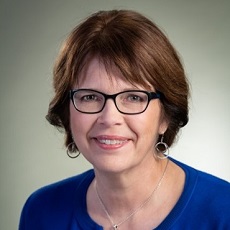
Karen Johnson
Senior Director, Change in Mind Institute
Social Current
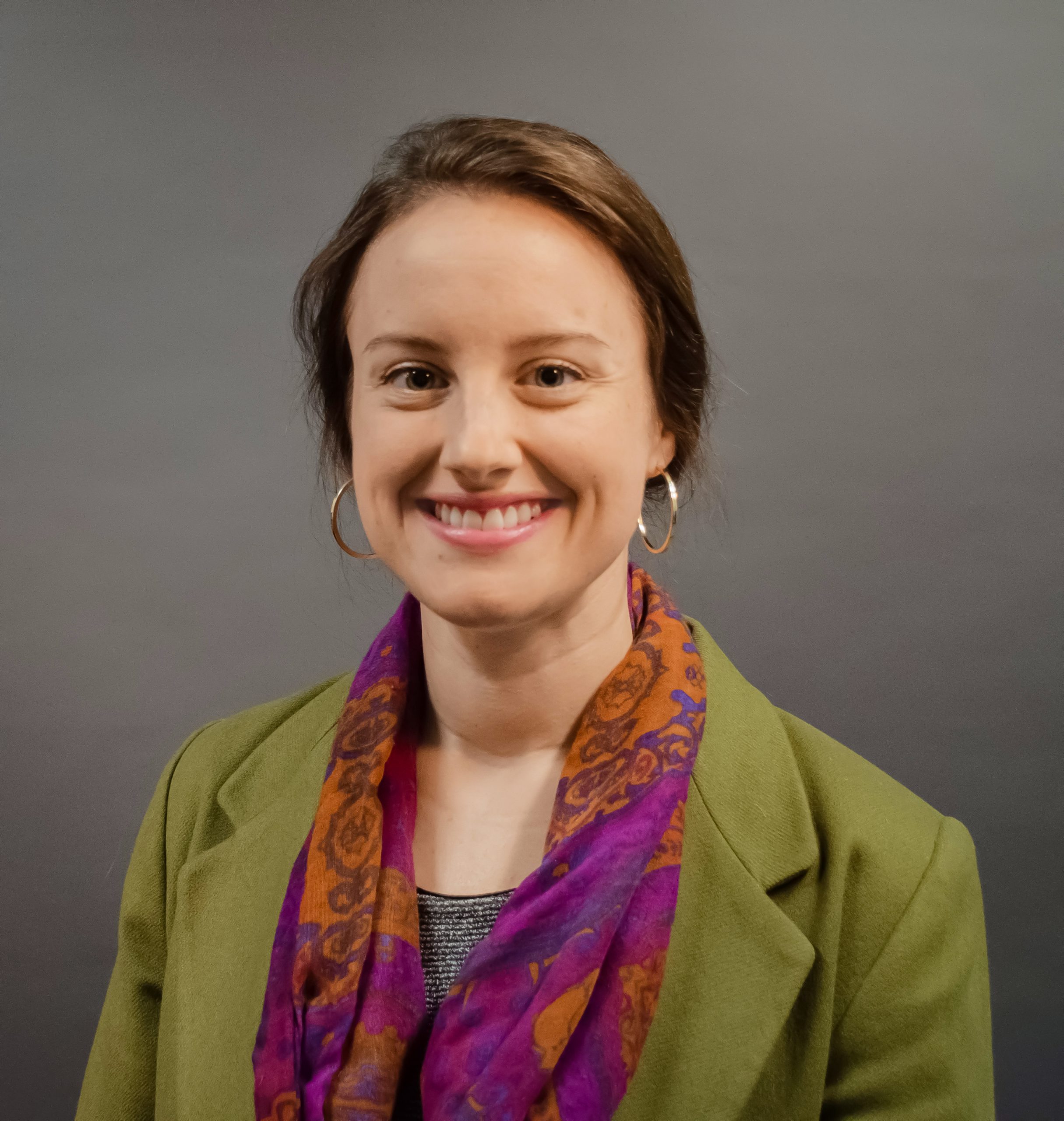
Kelly Martin
Director, Practice Excellence
Social Current
Related Events
October 26, 2023 @ 2:00 pm – 3:00 pm EDT
Join Social Current’s Strategic Industry Partner FlexAMS as they provide an overview of a clinical model used to treat clients through attachment-based and trauma-informed care. They will review types of interventions clinical teams can provide and share general information on client outcomes. Presenters will explain how they utilize an electronic health record to tell the client’s story, identify barriers, and demonstrate progress.
Using an electronic health record (EHR) in a residential setting allows for better integration and communication between direct staff and clinical staff, all of whom are striving for better clinical outcomes. Leadership can identify trends on adverse incidents, restraint use, and other important factors. An EHR also improves record keeping, efficiency, and demonstrating clinical outcomes through reporting capabilities.
Takeaways
- Insight into the Developmental Trauma and Attachment Program (DTAP) clinical model, developed and used by Chaddock in Quincy, Illinois
- Key clinical elements to include in documentation
- How to use documentation to demonstrate client progress and improve reporting capabilities
Who Should Participate
- Clinicians
- Clinical supervisors
- Information technology staff
- Behavioral health leaders
Presenters
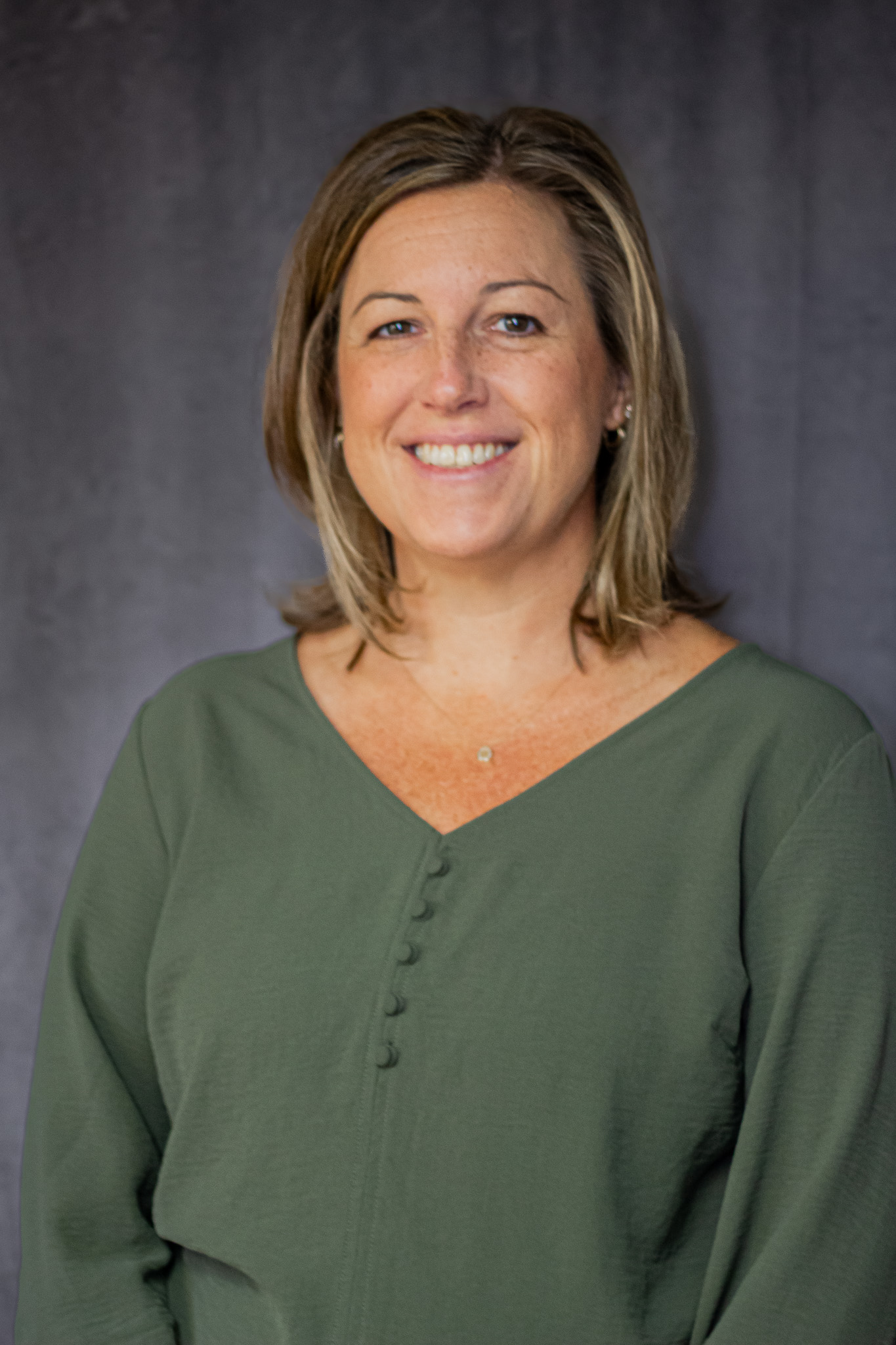
Amanda Becks, MSW, LCSW
Clinical Supervisor,
Chaddock
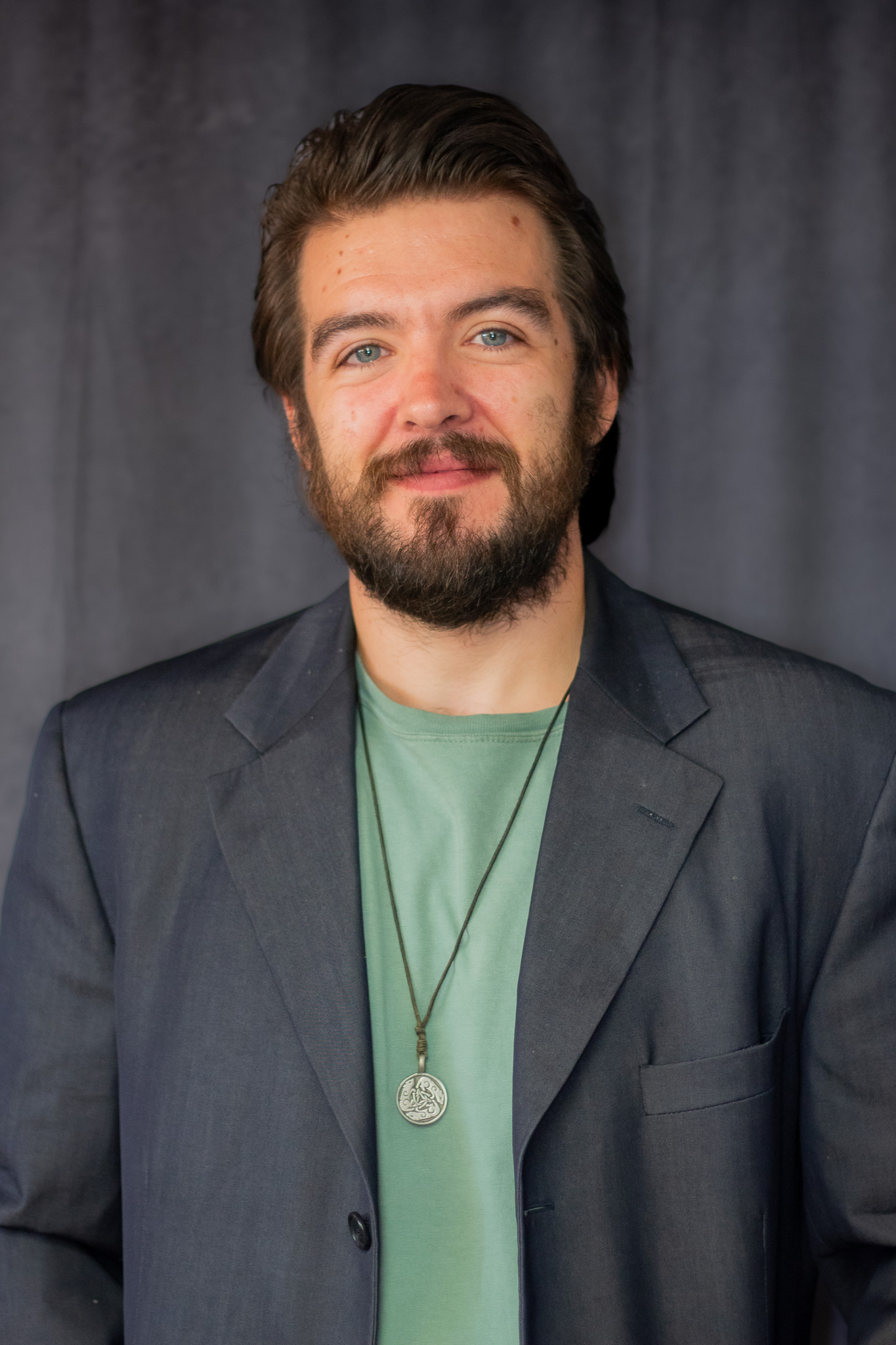
Tim White, MSW, LCSW
Clinical Therapist,
Chaddock
Related Events
November 9, 2023 @ 2:00 pm – 3:00 pm EST
Register for an individual webinar or full series by Aug. 14 to save. No coupon code is needed. Discounts will be applied directly to your cart at checkout.
Early bird rates:
- $50 for one webinar (additional webinars are $65)
- $200 for four-part series
Regular rates:
- $65 for individual webinars
- $235 for four-part series
You’ve heard the adage, “Culture eats strategy for breakfast.” It’s true. We need to acknowledge that if our organizational culture is unhealthy, we will struggle to get our work done. Intentionally building a positive staff culture that reflects the organization’s stated values and beliefs, and is aligned with our strategy, is the pathway to building a resilient and thriving organization.
Organizational culture is the shared values, beliefs, customs, and practices that are part of everyday life in an organization. It effects all operations within an organization. A resilient organization has a shared agreement with the employee that we work together to bring to life our stated values by realizing them in our norms, behaviors, customs, and practices.
This webinar, the third session in the Workforce Well-Being and Resilience learning series explores the ingredients of a positive staff culture, and the steps needed to achieve it. Learn strategies for bringing our organizational values into daily interactions, achieving clear and realistic boundaries and expectations, and aligning our culture and strategy to build resilience and success.
About the Webinar Series
As workforce challenges continue to hinder human services organizations, leaders are searching for concrete action steps to support staff who are emotionally and physically exhausted. Though staff often enter the field excited to make a difference, it can be difficult to keep them connected to the vision and mission of the organization.
This four-part webinar series will delve into core strategies and tactics for supporting staff, such as increasing accountability, managing conflict, nurturing relationships, embracing equity, and achieving excellence. Sessions in this series:
- Embed Brain Science: Sept. 19 from 2-3 p.m. ET
- Foster Candidness through Psychological Safety: Oct. 5 from 2-3 p.m. ET
- Create Culture around Shared Values: Nov. 9 from 2-3 p.m. ET
- Integrate Connection and Community: Dec. 12 from 2-3 p.m. ET
Takeaways
- Define organizational culture
- How to realize organizational values in daily interactions
- How to promote boundaries and expectations that support attitudes and behaviors critical to the agency mission and staff well-being
- Steps for aligning organizational culture and strategy
Who Should Participate
- Executive and senior leaders
- Middle managers
- Human resource staff
- Staff with responsibility for EDI
Individuals who are champions for strengthening the workforce culture, regardless of their title, will benefit. This guidance is relevant for all workforces across the human services ecosystem, including at the community, systems, government, and policy levels.
Presenters

Karen Johnson
Senior Director, Change in Mind Institute
Social Current

Kelly Martin
Director, Practice Excellence
Social Current


